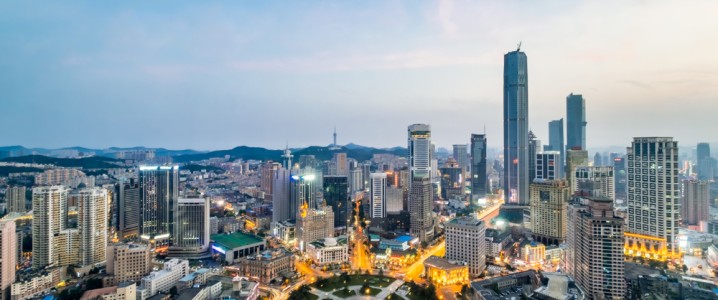Power Grid
CHINA SURPASSES EUROPE IN PER CAPITAL ENERGY CONSUMPTION.
Irene Jerry

China's energy consumption per capital has surpassed that of Europe, driven by decades of economic growth and infrastructure development. Despite significant investments in renewable energy, China remains the world's largest emitter of greenhouse gases due to its manufacturing-heavy economy. Achieving climate goals requires global cooperation, as policies aimed at reducing emissions in one country may inadvertently increase emissions elsewhere. Dalian Zhongshan Square, Liaoning, China.
“China has changed the energy world, but now China is changing,” the International Energy Agency (IEA) reported in their 2023 flagship World Energy Outlook. The second-largest economy in the world has saturated its own market. After years of rapid infrastructure development, the vast Chinese domestic market is finally just about tapped. However, China's energy demand continues to grow despite the slowing economy, bursting property bubble, and high unemployment rates.
As China's economic growth plateaus, the country is doubling down on manufacturing and exports to maintain its economic momentum. This strategy has led to China's energy consumption per capita surpassing that of Europe for the first time. According to IEA figures, China's per-person energy consumption grew 489% from 2001 to 2021. While greenhouse gas emissions also increased, they didn't keep pace with energy demand thanks to unparalleled investments in renewable energy.
China added more renewable energy capacity last year than the rest of the world combined, with renewables now making up half of its installed power generation capacity. Despite these efforts, China still accounts for 31.72% of global emissions. The country's manufacturing-focused policy has implications for global climate goals, and it's important to recognize that emissions from Chinese manufacturing are partly due to high overseas demand. Achieving the Paris Agreement pledges requires global cooperation and avoiding the political temptation to outsource emissions to poorer countries.
